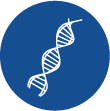The 9 Antioxidant Nutrients You need
Antioxidants are essential compounds that help the immune system to work more efficiently. As the day goes by, our body creates different types of waste, one of which are Free radicals. This waste damages our body and the immune system, constantly creating inflammation in different organs in our body. This leads to further conditions, especially in the elderly, who may develop complications such as cardiovascular disease and various types of cancer.
Naturally, the body produces antioxidants on its own to balance out cellular destruction. The compounds are responsible for capturing these free radicals, thereby causing a reduction in damages to the body. However, in addition to the free radicals that the body produces as waste, free radicals are also produced from other factors such as aging, stress, lack of sleep, pollution, smoke, alcohol and processed food. This is why it is important to consume foods rich in vitamins and minerals to fuel our body to produce more antioxidants to fight the formation of free radicals and keep our immune system functioning effectively.
1. Vitamin C
Highly sensitive and responsive to protect our body from damage caused by free radicals which occur during the metabolism of cells and from receiving toxic substances or pollution. The vitamin C levels in blood will decrease when we are infected or under a lot of stress. Vitamin C is responsible for promoting the work of the immune system in the body, both congenital and acquired immunity. It also promotes the production and strengthening of white blood cells in the fight against foreign bodies, and contributes to the recycling of vitamin E. Studies have also shown that vitamin C supplementation helps to reduce the severity and duration of respiratory infections, such as tuberculosis and pneumonia. Such foods that are high in vitamin C include Indian gooseberry, guava, sweet pepper, and oranges.
2. Vitamin E
As a vital nutrient for the immune system, due to it being a fat-soluble antioxidant. Vitamin E can be found in cell membranes throughout the body, including cells of the immune system that are rich in polyunsaturated fatty acids, helping to strengthen immunity. In addition, the reaction of antioxidant nutrients can also work together to reduce the adverse effects of polyunsaturated fatty acids. Vegetable oils, nuts including almonds or peanuts, and avocado are good sources of vitamin E.
3. Alpha lipoic acid
A naturally occurring antioxidant in the human body and can also be found in food and dietary supplements. Alpha-lipoic acid is an antioxidant widely used for medical purposes.
Evidence suggests that alpha-lipoic acid may have effects on the immune system, both innate and acquired. Studies have shown that alpha-lipoic acid supports the regulation of and strengthening of the immune system by inhibiting the immune cells that cause inflammation as well as the production of cytokine protein TNF-α. In addition, this strengthens the function of natural antioxidants and from foods such as glutathione, coenzyme Q10, and vitamin C. As a result, these functionalities help to treat or restore disorders in the immune system that may lead to chronic inflammation causing diseases such as obesity and diabetes. Foods with high alpha-lipoic acid are yeast, beets, spinach, broccoli, tomatoes and potatoes.
4. Astaxanthin
This star antioxidant plays a significant role in producing antioxidant and anti-inflammatory effects amongst all the compounds present in food. With an antioxidant level 550 times higher than vitamin E and 6,000 times more than vitamin C, Astaxanthin is known to be an enormous immune system booster. From a study in both in-cell and in living organisms, it has been found that those who take Astaxanthin have higher immune cell function. In addition, Astaxanthin also helps to increase the number of acquired immune cells and helps increase the production of cytokines and antibodies. Therefore, eating foods that contain Astaxanthin or dietary supplements may not only help strengthen the immune system, but also help to strengthen the body as a whole. Astaxanthin can be found in foods such as green algae (Haematococcus pluvialis), and arctic shrimp (Pandalus borealis).
5. Vitamin D
Not only is Vitamin D related to bone health, it is a vital compound for various health aspects such as the functioning of the immune system, cancer prevention and regulation of the production and death of cells. It is known that vitamin D deficiency leads to the risk of various non-communicable diseases and many other infectious diseases caused by viruses and bacteria. By stimulating and enhancing innate immune systems such as macrophage, regulatory T cells, and natural killer cells (NK cells) vitamin D is highly crucial. In the past, vitamin D was used to treat infectious diseases such as tuberculosis. Current studies have found that when we have a high level of Vitamin D in our blood, the chance of getting a cold will be 42% reduced. The sun is the best source of Vitamin D. It can be produced from cholesterol in your skin when it’s exposed to ultraviolet B (UVB) rays from the sun. There are some foods that provide Vitamin D such as fatty fish like salmon or tuna, fish liver oil, mushrooms exposed to UV light, and yeast.
6. Zinc
Zinc is important for body functioning related to growth, immune system, reproductive system and biological nerve system that regulates our behavior. People with severe zinc deficiency often experience dermatitis, anorexia, decreased appetite and taste, odor, hair loss, diarrhea and emotional disorders, slowed growth and in addition, may get infected easily. There has been evidence showing correlation between zinc deficiency and the risk of infectious diseases that cause death in small children. Zinc supplementation reduces the death rate from infectious diseases by up to 18%. Zinc deficiency may be caused by different reasons such as insufficient zinc intake, an increased body’s demand of zinc, an unusually high absorption rate, an increased zinc loss, as well as the body's inability to use zinc properly. The risk groups are infants, young children, teenagers, pregnant women and lactating women. Foods that are high Zinc include legumes, nuts, seeds, and whole grains.
6. Fish Oil
Fish Oil contains fatty acids consisting of omega-3 and omega-6 with EPA (Eicosapentaenoic acid). EPA has the ability to reduce triglycerides and cholesterol, a reduction in the clogging of the blood vessels and platelet adhesion that causes ischemic stroke and ischemic heart disease. Therefore, fish oil helps to reduce the risk of heart and brain disease. DHA (Docosahexaenoic Acid) fatty acids help strengthen brain development, learning and memory. It can therefore reduce the risk of Alzheimer's disease. Fish oil also contains antioxidant and anti-inflammatory effects (Anti-inflammatory activity), which is also the root of Alzheimer's disease.
8. Curcumin
Curcumin is found in turmeric, the herb commonly used in Southeast Asian cuisine and Thai remedies since ancient times. It has an antioxidant effect enhancing the function of the enzyme responsible for eliminating free radicals in the blood such as superoxide dismutase (SOD), glutathione peroxidase (GSH) and lipid peroxides. Compared to plants in the same family, turmeric has the highest antioxidant quality.
9. Tannin
Tannin is an astringent that is an important active ingredient found in Indian gooseberry. The antioxidant from tannin is part of the Polyphenols group. It is enriched with vitamins, minerals, botanical chemicals, especially important substances such as vitamin C (Ascorbic acid) which is found to be more concentrated than in oranges or limes. Consuming a portion of 4 fresh Indian gooseberries provides up to 100 milligrams of vitamin C, equivalent to eating 6 oranges. It is also rich in minerals, proteins, and amino acids such as glutamic acid, aspartic acid, alanine and lysine; as well as other phytochemical such as quercetin found within flavonoid group; as well as gallic acid, ellagic acid, chebulinic acid.
It is a common fact that eating enough vitamins and diverse types of minerals plays an important role in our health. In choosing what to eat, be sure to consider the benefits, as this is a good way to keep the immune system working efficiently, not only to protecting us from viruses or bacteria, but also as a foundation for us to counteract diseases. Natural antioxidants such as vitamin C, vitamin E, alpha lipoic acid and Astaxanthin are surely secret weapons to help us recover, maintain good health and strengthen our immune system. However, try to consume a balanced and sensible diet and make sure not to go too extreme with vitamins and supplements. Consider having a blood test to determine vitamin levels you have in your body, then consult a medical professional before taking that vitamin supplement.
Thai dishes for a Healthy Immune System
Indian Gooseberry Chilli Paste with Fresh Boiled Vegetables
- Indian gooseberry: High vitamin C, great for the immune system. 4 freshly-picked Indian gooseberry contain up to 400 milligrams of vitamin C, equivalent to eating 6 oranges.
- Red chilli: Capsaicin found in red chilli helps relieve mucus and coughing due to colds. Beta-carotene in chilli also helps to protect the lining of the mouth, nose, throat and lungs.
- Garlic: Protects against pathogenic microbes in the digestive and urinary tract
Yellow Curry with Moringa and Fish
- Moringa: Helps reduce sugar levels and blood cholesterol.
- Finger root ginger: There are many active ingredients in Chinese ginger, such as Bosenbergin A, Cardamonin and Flavonoids, which have anti-inflammatory effects and can act as an equivalent antioxidant with vitamin E derivatives (Trolox).
- Hairy Basil Leaf: Helps to relieve the symptoms of colds, nasal congestion and produces breast milk.
Sources:
- Friesen K, Boost Your Immune System with Antioxidants. [cited 2020 April 3].
- Available from : https://www.openhand.org/blog/boost-your-immune-system-antioxidants
- Pangrazzi L. Boosting the immune system with antioxidants: where are we now?. Immunology 2019. Febuary:42-4.
- Bendich A. Vitamin E and immune functions. Basic Life Sci 1988. 49:615-620.
- Liu W, et al. The Immunomodulatory Effect of Alpha-Lipoic Acid in Autoimmune Diseases. Biomed Res Int. 2019:11-21.
- Cave MC, et al. Obesity, Inflammation, and the Potential Application of Pharmaconutrition. Nutr Clin Pract. 2008. 23(1):16-3
- ปริมาณสารอาหารอ้างอิงที่ควรได้รับประจำวันสำหรับคนไทย พ.ศ.2563 โดย คณะกรรมการและคณะทำงานปรับปรุงข้อกำหนดสารอาหารที่ควรได้รับประจำวันสำหรับคนไทย สำนักโภชนาการ กรมอนามัย กระทรวงสาธารณสุข.




